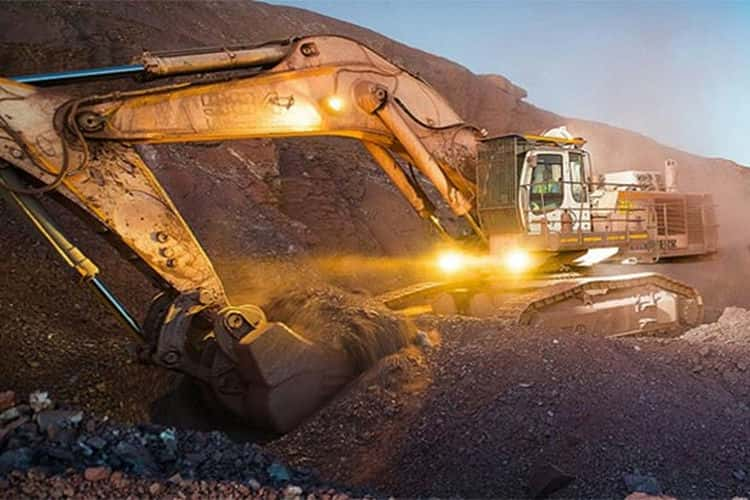Mining is an essential industry that plays a crucial role in the global economy. It involves extracting valuable resources from the earth, including minerals, metals, and fossil fuels. From providing raw materials for various products to creating employment opportunities, mining has a significant impact on our daily lives.

However, mining also has its fair share of controversies, mainly due to its environmental impact and safety concerns. To mitigate these issues, mining companies need to adhere to essential components and practices that prioritize sustainability and responsibility. In this blog post, we will discuss the critical components and practices in the mining industry.
Components of Responsible Mining
Responsible mining refers to the ethical, transparent, and sustainable practices implemented by mining companies. It takes into consideration the environmental, social, and economic impacts of mining operations. Here are the primary components that make up responsible mining:
1. Environmental Stewardship
Mining activities have a significant impact on the environment, including air and water pollution, deforestation, and disruption of ecosystems. Responsible mining involves implementing practices that minimize these impacts and promote sustainability. This includes proper waste management, use of renewable energy sources, and rehabilitation of the land after mining operations are completed.
2. Social Responsibility
Mining companies have a responsibility towards the communities living in and around their operations. Responsible mining involves engaging with these communities and addressing their concerns and needs. This can include providing job opportunities, supporting local businesses, and investing in community development projects. It is also crucial for mining companies to respect the rights of indigenous communities and involve them in decision-making processes.
3. Ethical Business Practices
Responsible mining requires companies to adhere to ethical business practices, including transparency, fair labor standards, and human rights protection. This includes providing safe working conditions for miners, fair wages, and ensuring that supply chains are free from conflict minerals. Mining companies must also be transparent about their operations and adhere to regulations and laws.
4. Safety Standards
Mining is an industry that has always been associated with risks, hazards, and potential accidents. Workers often work in challenging environments, and the use of heavy equipment such as rail car dumpers only increases the risk.
However, responsible mining aims to prioritize the safety of its workers by providing proper training, ensuring equipment maintenance, and adhering to safety protocols. Emergency response plans must also be in place to mitigate any potential risks. Through concerted efforts, the mining industry can work towards making workplaces safer for all its workers.
Best Practices in the Mining Industry
In addition to these essential components, there are also best practices that mining companies should follow to ensure responsible and sustainable operations. These include:
1. Use of Technology
Advancements in technology have made it possible for mining companies to minimize their environmental impact and improve efficiency. For example, using drones for surveying can reduce the need for heavy machinery, and implementing automation systems can increase productivity while reducing the risk of accidents. Embracing technology also allows for better data collection and analysis, which can inform decision-making processes.
2. Collaboration and Transparency
Mining companies must collaborate with all stakeholders, including governments, communities, and non-governmental organizations (NGOs). This promotes transparency and ensures that the concerns of all parties are addressed. Collaboration can also lead to innovative solutions for minimizing environmental impacts and promoting sustainable practices.
3. Responsible Mineral Sourcing
Mining companies must ensure that their mineral sourcing is responsible, meaning it does not contribute to human rights abuses or conflict. This requires thorough due diligence and traceability throughout the supply chain. Companies should also adhere to international standards, such as the OECD Due Diligence Guidance for Responsible Supply Chains of Minerals from Conflict-Affected and High-Risk Areas.
4. Continuous Improvement
Responsible mining is an ongoing process that requires continuous improvement. Companies should regularly assess their operations and make necessary changes to improve sustainability and responsibility. This can include implementing new technologies, updating policies and procedures, and engaging with stakeholders to address concerns and feedback.
The Role of Governments
While mining companies have a significant responsibility in promoting responsible practices, governments also play a crucial role. Governments need to establish clear regulations and standards for the mining industry and enforce them effectively. This includes holding companies accountable for any environmental or social impacts caused by their operations.
Governments should also work with mining companies and other stakeholders to promote responsible practices and address any issues that may arise.
In Conclusion
Responsible mining involves a combination of essential components and best practices that prioritize sustainability, responsibility, and collaboration. Mining companies must adhere to these standards to minimize their environmental impact, promote social responsibility, and ensure ethical business practices. With the cooperation of all stakeholders, we can work towards a more responsible and sustainable mining industry.




